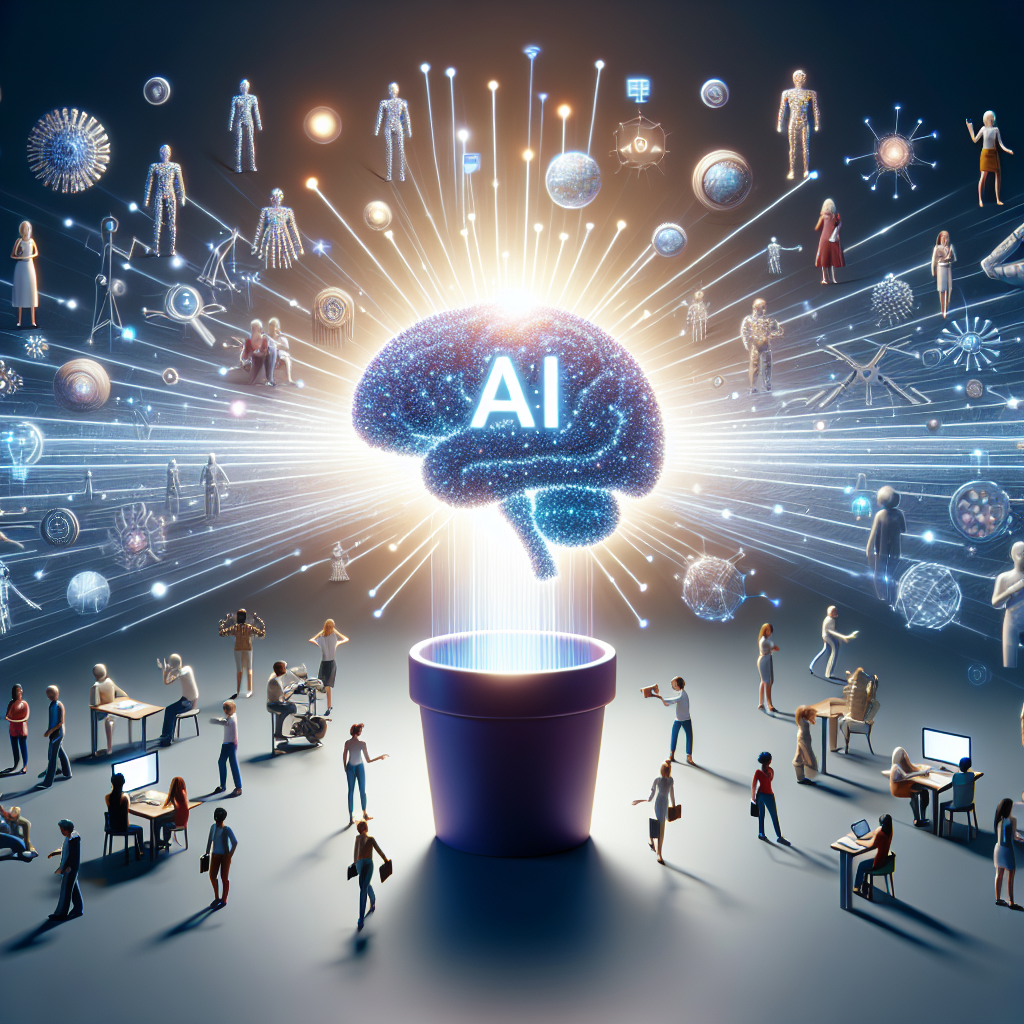In recent years, artificial intelligence (AI) has become increasingly prevalent in our daily lives. From virtual assistants like Siri and Alexa to recommendation algorithms on social media platforms, AI technology has revolutionized the way we interact with and consume information. However, the widespread adoption of AI has also raised concerns about the concentration of power and resources in the hands of a few tech giants, leading to calls for democratizing AI to empower individuals and communities.
What does democratizing AI mean?
Democratizing AI refers to the idea of making AI technology more accessible and inclusive, so that individuals and communities outside of tech companies and research institutions can harness its potential. This includes providing tools, resources, and opportunities for people to learn about and engage with AI, as well as ensuring that the benefits of AI are distributed more equitably across society.
There are several key components to democratizing AI:
1. Access to AI tools and technologies: One of the main barriers to democratizing AI is the high cost and technical complexity of developing and deploying AI applications. By providing open-source AI tools and platforms, as well as training programs and resources for individuals and organizations, more people can participate in the development and use of AI technology.
2. Diversity and inclusion in AI development: Another important aspect of democratizing AI is promoting diversity and inclusion in the AI field. This includes increasing representation of women, people of color, and other underrepresented groups in AI research and development, as well as designing AI systems that are fair and unbiased.
3. Ethical and responsible AI: Democratizing AI also involves ensuring that AI technologies are developed and used in a way that is ethical, transparent, and accountable. This includes addressing issues such as bias in AI algorithms, data privacy and security, and the impact of AI on jobs and society.
Why is democratizing AI important?
Democratizing AI is important for several reasons:
1. Empowering individuals and communities: By democratizing AI, we can empower individuals and communities to use AI technology to solve real-world problems, improve their lives, and create new opportunities for economic and social development.
2. Fostering innovation and creativity: By opening up AI technology to a wider range of people and organizations, we can unleash the potential for new ideas, applications, and solutions that may not have been possible otherwise.
3. Promoting equity and fairness: Democratizing AI can help to address the growing disparities in access to and benefits from AI technology, and ensure that the benefits of AI are shared more equitably across society.
How can we democratize AI?
There are several strategies for democratizing AI:
1. Education and training: Providing opportunities for people to learn about AI, including through educational programs, workshops, and online courses, can help to increase awareness and understanding of AI technology.
2. Open-source and collaboration: Supporting open-source AI projects and fostering collaboration among researchers, developers, and practitioners can help to democratize access to AI tools and resources.
3. Diversity and inclusion: Promoting diversity and inclusion in the AI field, through initiatives such as mentorship programs, scholarships, and outreach efforts, can help to broaden the pool of talent and perspectives in AI research and development.
4. Ethical guidelines and regulations: Establishing ethical guidelines and regulations for the development and use of AI technology can help to ensure that AI systems are designed and deployed in a way that is fair, transparent, and accountable.
FAQs
Q: What are some examples of democratizing AI initiatives?
A: Some examples of democratizing AI initiatives include Google’s TensorFlow open-source AI platform, which allows developers to build and deploy AI applications, and Microsoft’s AI for Good program, which provides grants and resources for using AI technology to address social and environmental challenges.
Q: How can individuals get involved in democratizing AI?
A: Individuals can get involved in democratizing AI by participating in AI education and training programs, contributing to open-source AI projects, advocating for diversity and inclusion in the AI field, and engaging in discussions about the ethical and social implications of AI technology.
Q: What are some potential challenges to democratizing AI?
A: Some potential challenges to democratizing AI include the technical complexity of AI technology, the need for greater investment in AI education and training programs, the risks of bias and discrimination in AI algorithms, and the impact of AI on jobs and society.
In conclusion, democratizing AI is a critical step towards ensuring that the benefits of AI technology are shared more equitably across society and empowering individuals and communities to harness its potential for positive impact. By promoting access, diversity, and ethical responsibility in the development and use of AI technology, we can create a more inclusive and sustainable future for AI.

